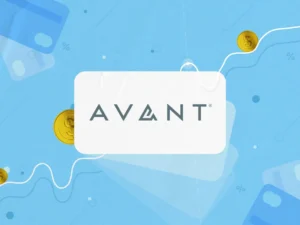Paying off your loan sooner gives you financial freedom and peace of mind. By trying different ways to pay back quickly, you save time and money. It’s important to know the benefits of early loan repayment for long-term financial health.
Changing how you make payments and using extra cash wisely can help. This part talks about many methods to manage your debt well and get financially independent faster.
Getting your loan approved quickly and using online loans smartly can help manage your debt. If done right, these steps can help you pay off your loan faster. This means reaching your financial goals quicker.
Key Takeaways
- Paying off loans ahead of schedule can save you time and interest costs.
- Understanding and managing your loan terms is essential.
- Creating and sticking to a budget helps in quicker loan repayment.
- Bi-weekly payments are an effective strategy for rapid loan payoff.
- Utilizing surplus funds can expedite loan principal reduction.
- Refinancing can secure better interest rates and terms.
- Automating payments ensures consistency and prevents late fees.
Understand Your Confirm Your Loan Terms
It’s vital to really know your loan terms before you make repayment plans. Loan terms are key for smart money management. They help you get how interest rates, repayment plans, and loan start amount work together.
Interest Rates
Interest rates change how much you pay back in total. It’s important to know if your rate stays the same or can change. Fixed rates mean your payments won’t change, which is nice. But, variable rates can go up or down.
Repayment Schedule
It’s crucial your payment plan fits your budget. A good plan helps avoid late fees. Choosing an accelerated loan application could give more flexible payment options. This makes it easier to find Get Money Fast plans that work for you.
Loan Principal
The loan principal is the amount you first borrow. How it’s calculated matters because your interest is based on what’s left of it. Paying on time reduces this amount and so the interest. Using instant funding helps keep your principal payments consistent.
| Loan Component | Key Factors |
|---|---|
| Interest Rate | Fixed vs. Variable |
| Repayment Schedule | Flexible Terms |
| Loan Principal | Initial Borrowed Amount |
Understanding these parts helps you make a better repayment plan. This insight is crucial for paying back your loan well.
Create a Budget and Stick to It
Making a budget is key for good financial planning. It helps make sure the Rapid Loan Process doesn’t mess up your money situation. By organizing what you earn and spend, you can put more money towards paying off debts and reaching financial stability.
Tracking Your Expenses
The first thing you should do is keep track of all your expenses. This lets you see where you might be spending too much. Use apps or spreadsheets to help keep an eye on your money habits.
Setting Financial Goals
It’s important to have clear financial goals. They guide how you use your money. Whether it’s for saving for emergencies, clearing a debt, or funding education, goals make you more careful with your spending.
Cutting Unnecessary Costs
Look at your expenses to see where you can spend less. This helps you save more for paying off loans, easing the burden of the Rapid Loan Process in the long run. Try to eat out less, cancel memberships you don’t use, and choose cheaper options.
| Expense Type | Monthly Cost | Possible Savings |
|---|---|---|
| Dining Out | $200 | $100 |
| Subscription Services | $50 | $30 |
| Impulse Purchases | $150 | $75 |
Loans for People with Bad Credit
Learn how to apply for a personal loan even if you have bad credit.
Loans CreditThe application process is open and friendly, even for those with fair credit. Their loans go from $1,000 to $50,000, depending on your need.
You will remain on the same site
Make Bi-Weekly Payments
Switching to a bi-weekly payment schedule is a smart choice. It splits your monthly payment into two smaller parts. This way, you end up making one extra payment each year. It helps you save money quickly and pay less interest over the life of the loan.
Benefits of Bi-Weekly Payments
Bi-weekly payments speed up loan repayment. They reduce the principal balance faster, leading to less interest. With more payments, more money goes toward the principal. This helps you save money and build equity faster.
- Save Money Fast: Reduced interest means you save significantly over the loan’s life.
- Loan Repayment Plans: Bi-weekly payments align with many payment strategies, making it easier to manage your finances.
- Time Efficiency: Shortens the loan term without altering your monthly budget drastically.
Setting Up Bi-Weekly Payments
Setting up bi-weekly payments is easy. Most lenders let you switch to a bi-weekly schedule. Talk to your lender about how to make this change. Make sure you know about any fees. A well-planned payment schedule makes loan repayment smoother and boosts your financial health.
- Consult Your Lender: Verify the feasibility and any associated costs.
- Automate Payments: Setting automatic bi-weekly payments can prevent missed installments.
- Monitor Regularly: Keep track of your payments to stay ahead and adjust if necessary.
A bi-weekly payment plan is a powerful strategy. It helps you pay off your loan faster and save money. Plus, it brings financial peace of mind sooner than you might think.
Allocate Extra Funds Towards Your Loan
Putting extra money—like from savings or more income—towards your loan is smart. It’s a great way to use extra cash to benefit you in the long run. Making extra payments on the principal can get you to financial freedom faster.
Look at your budget to find money you can use to pay more on your loan. You might cut back on extras, get better deals on bills, or earn money on the side. These extra dollars add up, cutting down interest and loan time.
Using extra payments makes a big difference in handling debt. When you get extra money, like bonuses, put it towards your loan. This way, small but regular extra payments can greatly reduce your loan balance.
Better budgeting lets you pay more towards your loan. These steps can change how quickly you pay off your debt. By finding ways to pay extra, you move closer to being debt-free ahead of schedule.
Refinance for a Better Rate
Refinancing your loan can improve your financial situation. You might want a lower interest rate or better loan conditions. It’s key to know how refinancing works.
Understanding Refinancing Options
Refinancing means getting a new loan to replace the old one. This new loan could have a lower interest rate or different payback terms. It can save you money by lowering your monthly payments and the total you pay in the long run.
Refinancing Costs
Refinancing can help, but it does have costs like fees for applying, assessing your property’s value, and finalizing the loan. Compare these costs with how much you’ll save to see if a refinance loan makes sense for you.
When to Consider Refinancing
The best time to refinance is when interest rates drop or your credit score gets better. This increases your chances of a swift approval process and a better loan agreement. Always check your finances to know when it’s right to refinance.
Automate Your Payments
Nowadays, everyone is busy. Setting up Automated Loan Payments can make life easier. Your loan payments will always be on time. Automating your payments means you won’t face late fees or penalties. These can really add up. This simple act helps keep your payment history spotless. It also helps build a good credit score.
With automatic payments, forgetting payment dates is a thing of the past. It lowers the chance of missing a payment. This way, you simplify finances and manage your money better. It frees up time and mental space for what matters most.
Many lenders give benefits if you choose Automated Loan Payments. They might offer lower interest rates or fewer fees. This is a good reason for many to choose automation. The savings over time can be big. Also, paying on time improves your financial standing and relationship with lenders.
| Benefits | Description |
|---|---|
| Avoid Late Fees | Automatic payments ensure all dues are paid on time, thereby avoiding additional charges. |
| Lower Interest Rates | Some lenders incentivize borrowers with better rates for automated payments. |
| Good Credit Score | Consistent on-time payments positively impact your credit score. |
| Simplified Finances | Less stress and hassle by automating and streamlining your monthly obligations. |
Choosing Automated Loan Payments boosts your financial health. It ensures timely payments without stress over deadlines. This approach helps you stay on target with your repayments. It aids in achieving financial freedom.
Consider Debt Consolidation
Debt consolidation combines all debts into one easier payment. It can lead to lower interest rates and simpler money handling. This method helps you keep track of payments and pay off loans quicker.
How Debt Consolidation Works
A single loan replaces multiple debts. This means no more keeping up with various deadlines and rates. The new loan generally has better terms, offering lower rates or more time to repay.
Pros and Cons of Debt Consolidation
Debt consolidation loans come with both good and bad points:
- Pros:
- Lower interest rates
- Simpler payments
- Lower monthly payments are possible
- Cons:
- Repayment may take longer
- There could be extra fees
- There’s a risk of getting deeper into debt
Steps to Consolidate Debt
To successfully consolidate debt, just follow these steps:
- Assess your debts – Make a list of all you owe, noting the interest rates.
- Research consolidation options – Look for the best loan deal for your situation.
- Apply for the loan – Fill out an application and provide the needed information.
- Pay off existing debts – Use the new loan to clear the old debts, simplifying your finances.
- Plan your payments – Set up automatic payments for the new loan to avoid late fees.
Understanding debt consolidation well means making choices that fit your financial plans. It can assist in repaying loans faster and more efficiently.
Avoid New Debaths
Moving forward with loan repayment means being very careful with how you manage your debts. Taking on new debts can quickly mess up the progress you’ve made. It’s very important to borrow money wisely, which means not taking on more loans.
Keeping a strong handle on your credit is very important. Make sure you focus on paying off what you owe first and foremost. Understand what you owe and make a plan to pay it off. Here are some steps to help:
- Analyze Your Financial Health: Always keep an eye on your finances to know how well you can handle your debts.
- Set Clear Financial Goals: Make plans to pay off what you owe. Stay away from tempting new credit offers.
- Build an Emergency Fund: Save some money for emergencies. It helps you avoid taking new loans for sudden expenses.
Sticking to these debt management practices is crucial. It keeps you on the right track with your loan repayments. By doing this, you’ll work towards a future of financial wellness.
Utilize Windfalls and Bonuses
Getting unexpected money, like work bonuses or inheritances, is a great chance to lower your loan faster. You can rush the payoff by using these windfalls wisely. Knowing how to use this money right can hugely help your finances.
Applying Windfalls to Loans
If you get a big bonus, think about putting it toward your loan’s principal. Doing this cuts your debt and the interest you pay later. Paying extra early saves you more on interest, which means you get out of debt quicker.
Strategic Use of Bonuses
It’s crucial to use your bonuses smartly to pay off loans faster. Instead of spreading the money around, focus it on your debt. This can make your loan shorter and lead you to financial freedom sooner.
Using unexpected money wisely can really change how quickly you pay off your debt.
Let’s look at how smartly used windfalls can affect your loans:
| Windfall Amount | Impact on Loan Term | Interest Savings |
|---|---|---|
| $1,000 | Reduces loan term by 1 month | $150 |
| $5,000 | Reduces loan term by 5 months | $800 |
| $10,000 | Reduces loan term by 1 year | $1,700 |
Using these methods can make the path to paying off your loan much easier. Learning the smart way to handle windfalls and bonuses can lead to big savings and help you get rid of debt faster.
Keep Motivation High and Stay Committed
Keep your Personal Finance Motivation up for long-term debt repayment success. It goes beyond numbers to emotional strength. This keeps you on track instead of giving up.
Celebrating small milestones boosts your Commitment to Debt Repayment. When hitting a goal, acknowledge your success. But make sure these celebrations are small and budget-friendly.
Building a supportive environment is key. Surround yourself with reminders of your financial goals. From charts to online groups, find what keeps you motivated.
It’s also crucial to remember why you’re paying off debt. Write down and regularly review your reasons. This keeps you focused, especially when it’s hard.
| Motivation Strategies | Benefits |
|---|---|
| Celebrate Small Wins | Boosts morale and provides a sense of achievement |
| Join Supportive Communities | Offers encouragement and shared experiences |
| Visual Goal Tracking | Keeps goals in sight and progress measurable |
| Reflect on Your Why | Strengthens determination and focus |
Using these strategies, you’ll keep your Personal Finance Motivation strong. And your Commitment to Debt Repayment will keep you moving towards financial freedom.
Conclusion
Getting to financial freedom and paying off all loans is a big shift in your money life. In this article, we explored ways to pay loans faster. We looked at understanding loan terms, making a budget, and paying twice a month. There are also advanced ideas like refinancing and combining debts.
These steps help you put extra cash towards your loan, automate payments, and steer clear of new debts. Smartly using unexpected money, like bonuses, is key in cutting down your loan faster. It’s also vital to stay motivated; celebrating even small wins keeps you going.
The path to being debt-free is strategic and requires discipline. By using these concepts, you’re not just aiming to pay off loans. You’re also building a foundation for lasting financial health. Embrace these ideas, keep your eye on the goal, and enjoy the freedom of a no-debt life.
FAQ
What are some effective strategies to pay off my loan faster?
To quicken your loan repayment, try making extra payments. Setting up bi-weekly payments helps too. Using any extra money like bonuses also makes a big difference.
Additionally, following a budget helps you find extra money for your loan.
Best Rates on Personal Loans
How to apply for a loan Upgrade
Loan UpgradeTo apply for a loan at Upgrade, follow these steps:
You will remain on the same site
How can I make bi-weekly payments to reduce my loan term?
With bi-weekly payments, you pay half your monthly amount every two weeks. This approach means you’ll make 13 full payments yearly.
It’s a good strategy to lower both your loan term and interest costs.
What should I understand about my loan terms to accelerate repayment?
Knowing your loan’s interest rates, schedule, and principal is key. This lets you see how extra payments lower your debt faster and save interest.
How can budgeting help in repaying a loan faster?
Budgeting lets you track spending and set money goals. It also helps you find savings to put towards your loan.
This way, you can pay off the loan quicker.
Should I refinance my loan for a better rate?
Refinancing for a lower rate can save money and speed up repayment. Make sure to understand the new terms and costs to see if it’s worth it.
How can automating my payments help my loan repayment process?
Automated payments mean you never miss a due date, avoiding late fees. This might also get you a lower interest rate.
Plus, it makes managing money easier by saving you time.
What is debt consolidation and how can it aid in faster loan payoff?
Combining debts into one loan might get you a lower rate. It can make managing payments easier.
So, you could pay off your debt sooner.
Why is it important to avoid new debts while trying to repay an existing loan?
New debts can slow down your repayment efforts. Staying focused on your current loan is critical.
Practice wise borrowing to stay on track.
How can I use windfalls and bonuses to speed up loan repayment?
Extra cash, like tax refunds or bonuses, can cut down your loan balance. This reduces interest and speeds up repayment.
How do I stay motivated and committed to repaying my loan?
Setting clear goals and celebrating progress helps. Remember, being debt-free brings peace and financial freedom.
Keeping your eye on these rewards keeps you motivated.















